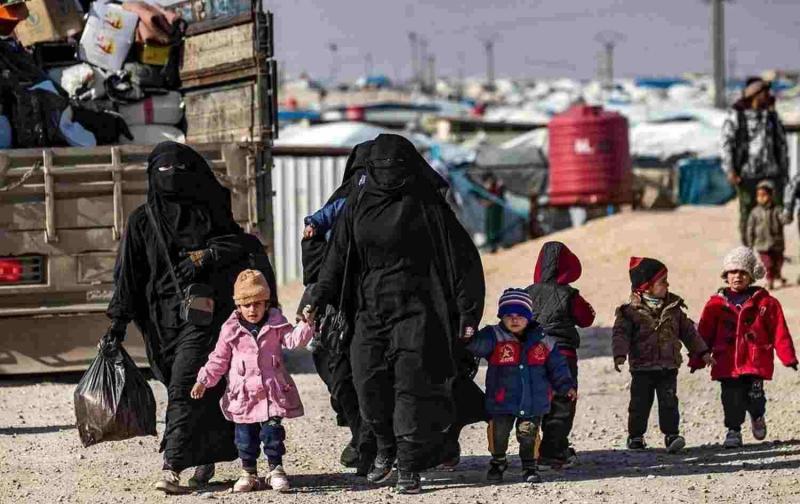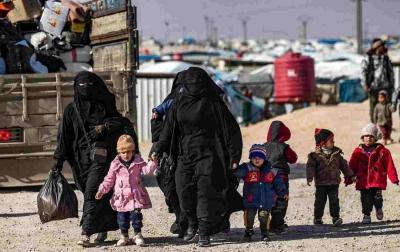Social welfare is a right for any citizen who applies for it, covering several categories according to the Social Welfare Law No. 11 of 2014, which stipulates that the Iraqi government provides support to those in need. This law targets groups such as families and individuals living below the poverty line, including Iraqis and legal residents from other countries. Beneficiaries include the unemployed, widows, divorced women, spouses of inmates, orphans, women deserted by their husbands, and the elderly. The amounts of assistance vary by category, and there are currently six million beneficiaries, with numbers increasing. The Ministry of Labor and Social Affairs is tasked with improving the living standards of marginalized groups and families living in poverty, despite "some reported violations and breaches related to social welfare activities run by the ministry," according to citizens.
Observers note that "the manifestations of these practices have multiplied within some governmental bodies, going beyond financial irregularities to administrative ones, and can reach the level of extortion, especially toward women such as widows, divorced women, and minors." It is widely acknowledged that the procedures for benefiting from grants can be complicated and difficult in some cases to secure entitlements guaranteed by Iraqi law.
The head of a women's organization, who requested anonymity, stated, "Some women, especially the widows and divorced women entitled to social welfare payments, face obstacles when following up on their cases, including demands from some employees for bribes to expedite their transactions and obtain their dues." Awaatif Hadi, 45, recounted that "an employee demanded 750,000 dinars (about $572) from my widowed sister to expedite her case and include her among the eligible recipients, a sum that is multiples of what she would receive as a grant over several months; she does not actually possess this amount and would have to borrow it to pay the employee."
One member of a women's organization, also requesting anonymity, remarked, "Many women are subjected to extortion, harassment, bargaining, and pressure, forcing them to abandon their rights instead of making compromises." Tamara Bassim shared her experience saying, "I am a widow of a victim of terrorism and have not escaped harassment while following up on my case. To process my application, the employee (Y.A.) asked for my phone number, claiming he would update me about my case. He subsequently began sending me photos with flirtatious messages and requested a meeting. At that point, I decided to forgo my right and left everything behind; currently, I do not think about following up on any official matters."
**Automation Benefits Vulnerable Groups**
Social researcher Mohammed Fakhri Al-Mullah described divorced and widowed women as "vulnerable classes," a term used for those who cannot withstand any form of violations. Women live in a patriarchal society with tribal characteristics, making it difficult for them to express their refusal or to respond to those who mistreat them, in addition to being the weaker party in decision-making, amidst a challenging economic situation for some and the routine of transactional processes. Thus, automation and transparency will reduce the incidence of this type of exploitation.
**Aid Requests**
After more than 400,000 electronic applications were submitted by women, it was found upon verification that 150,000 of these applications were submitted by men pretending to be women for social welfare benefits. The Minister of Labor announced the filing of 20 lawsuits against individuals with fake phone numbers and pages. On February 29, 2024, the Ministry of Labor and Social Affairs announced the launch of a campaign to recover funds from families that exceed their social welfare salaries. Ahmed Khalaf, head of the Social Welfare Authority, denied the existence of fake names, stating, "There are violators of the law among employees and retirees who had previously applied for the welfare grant and continued to receive payments even after being granted retirement or job salaries."
He added, "There are 35,000 violators, and the number may reach 300,000 in the coming months. In 2023, we discovered approximately 193,000 violators, and at the start of 2024, we identified over 24,000 violators of the social welfare grant. Thus, the amount recovered from violators exceeded 220 billion Iraqi dinars (about 168 million USD), added to the social protection fund to include new families in the protection network, and work continues to uncover overlaps with state departments."
**Data Comparison**
Abdul Rahman Al-Mansouri, Director-General of the Social Protection Department in the ministry, stated, "Cash amounts have been recovered, and the remaining amounts owed by violators must be paid in installments," confirming the ongoing process of identifying these individuals through data cross-checks with all ministries and state institutions. "This operation involves comparing data received from the Audit Bureau with our database, and assistance is immediately stopped for violators, and their administrative references are notified. The department deducts amounts from their salaries, and if they prefer to pay in cash, we directly collect the amount."




